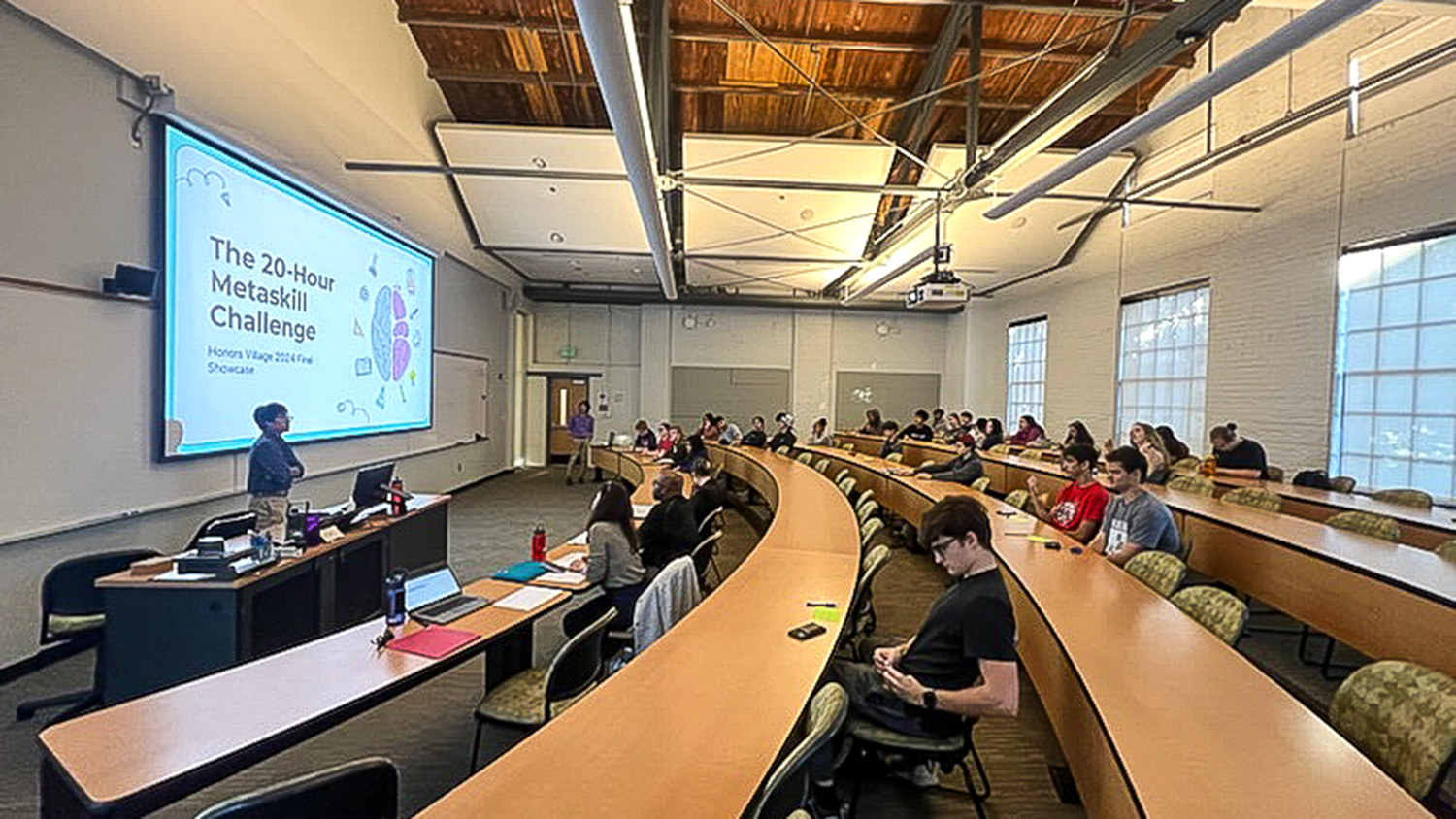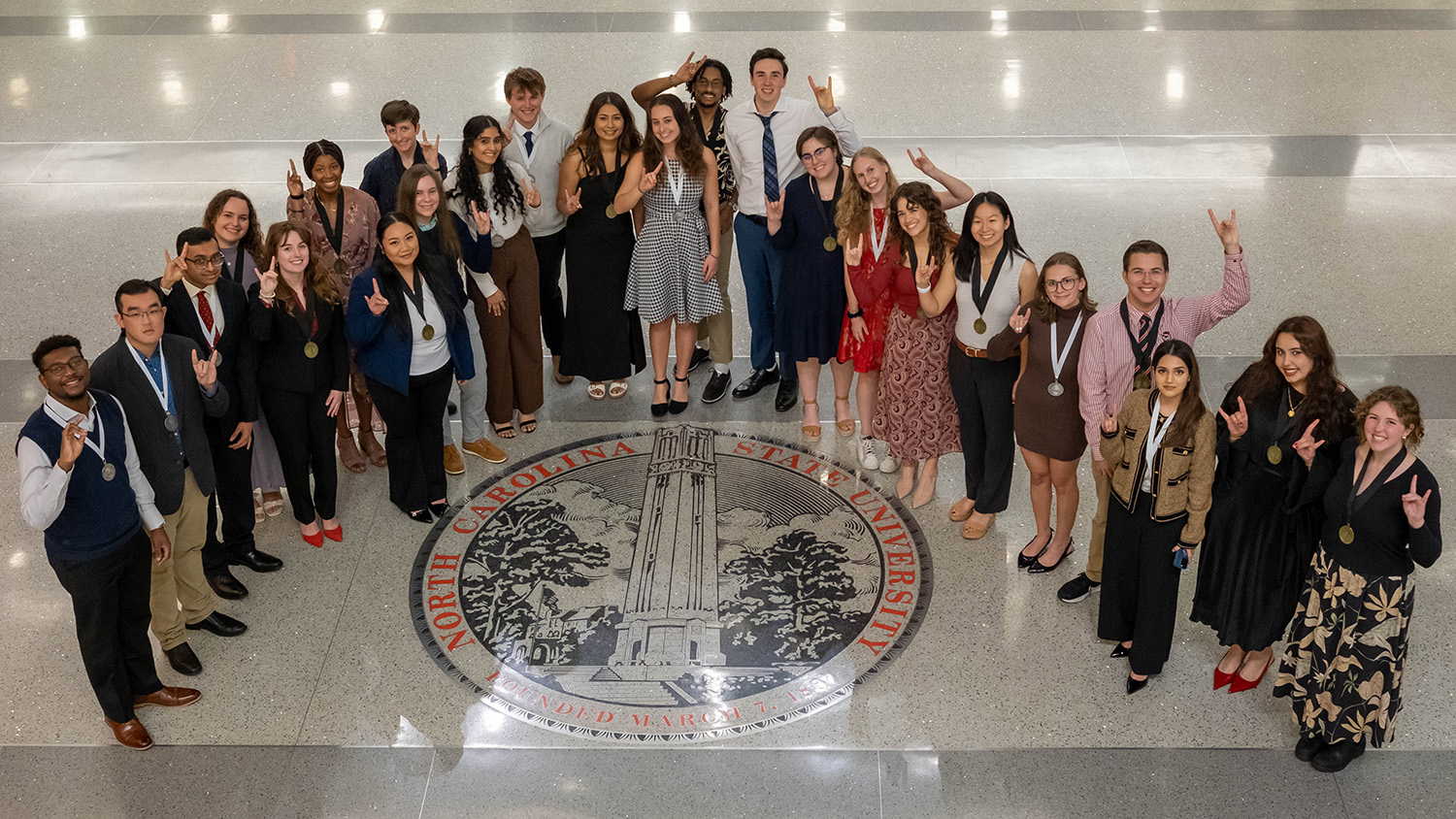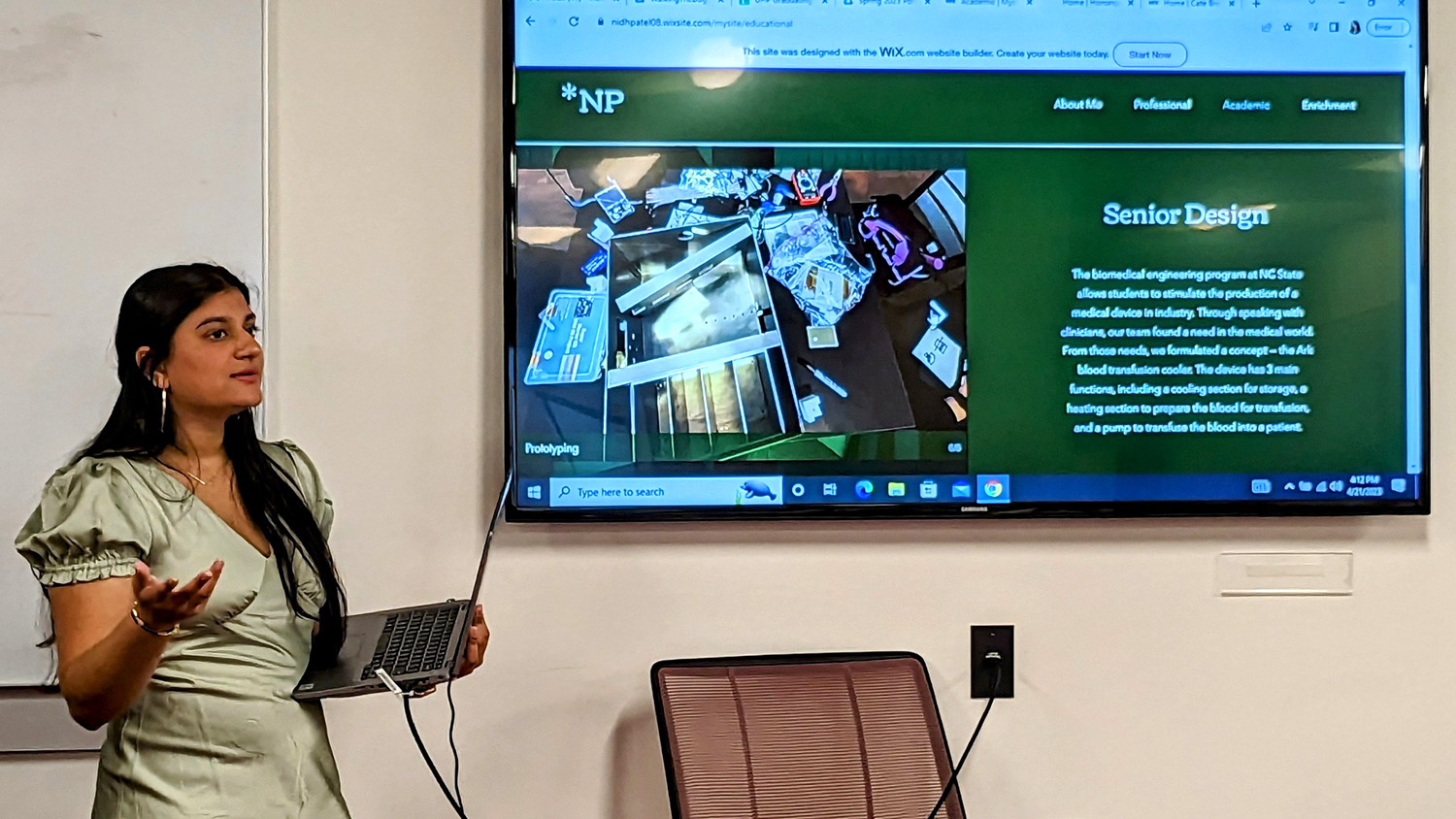Could Taking a Walk Power Your Devices? An NC State Student Thinks So
[lead]This month, Hanan Alex Hsain will showcase her undergraduate research work in one of the nation’s most competitive and selective events for student researchers. She is the first NC State student to be selected to participate in the 21st annual Posters on the Hill session, sponsored by the Council on Undergraduate Research.[/lead]
Hsain gained her first experience in a research environment during a summer internship with NASA’s Langley Research Center. The opportunity gave her a firsthand glimpse into what it’s like to be immersed in a culture of research, and she’s never looked back. Now a junior at NC State, she is part of the department of chemical and biomolecular engineering’s Dickey Research Group.
The basis of Hsain’s research centers around one key question: What if one of the most basic functions of human life—walking—could become the electricity that powers the devices that support our overall health? Her research focuses on wearable technology and energy; she is working to couple health monitoring devices like asthma sensors and heart monitors with the human body, harnessing ambient energy to power personal medical devices. Says Hsain,
[pullquote cite=”Hanan Alex Hsain” color=”wolfpackred”]“I want to make technology that is integrated to the human body, sustained by the human body. There’s a lot of energy out there. It just takes a creative way of harnessing it.”[/pullquote]
To be considered for the prestigious Posters on the Hill opportunity, Hsain worked with the Office of Undergraduate Research to submit an abstract which was judged on the readability of the proposal to an educated audience outside of the discipline; the technical merit or methodology of the project; and her demonstrated ability to present to a non-technical audience. The highly selective competition showcases sixty top student projects, providing student researchers with a platform to share their research with congressional members, meet their representatives, and learn about advocacy for undergraduate research.
The potential of Hsain’s work is exciting, and she’s set on making sure that those who are poised to help her vision reach society are well-informed. She hopes Posters on the Hill will be an opportunity to showcase her research to policymakers and ultimately be an influence on policy decisions. “I see myself not only as a scientist, but also as an advocate for science. I think we make the mistake of saying, ‘this evidence speaks for itself.’ But it doesn’t, because people speak for the evidence”, says Hsain. “I want to work with people beyond academia so that this technology might actually reach society and make a lasting impact.”
- Categories:


